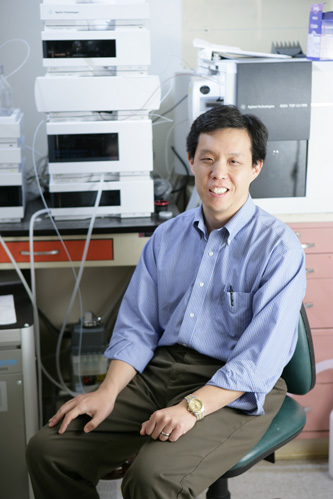Dr. Rhee Receives Two Grants from Gates Foundation
November 9, 2010

A graduate of Cornell University, Dr. Rhee is one of only nine grantees to receive further funding from the Bill & Melinda Gates Foundation, through the Grand Challenges Exploration Program. Dr. Carl Nathan was another of these nine grantees to receive follow-on funding. In addition, each received a second grant through the TB Drug Accelerator Program (two of only seven), an independent program that is part of the larger Gates "Grand Challenges" initiative.
Known for his unconventional approach in the field of tuberculosis research, Dr. Rhee has been working at the molecular level studying Mycobacterium tuberculosis (Mtb) since 2006. He has pursued a course of study that challenges longstanding assumptions about the basic biology of Mtb, the causative agent of TB-with a particular interest in the biological basis of latency. Mtb latently infects one in every three people on the planet. While only 10% of this cohort may become ill, the global clinical burden of Mtb accounts for 8 million cases and 2 million deaths annually. Latent Mtb is thus thought to represent the principal barrier in discovering faster and better cures for TB. Complicating the terrain, highly drug-resistant strains of TB are on the rise.
In order to gain control of the TB pandemic, Dr. Rhee has sought to facilitate the development of better, faster cures. To do so, he and his team have pursued the development and application of a tool from the physical sciences: mass spectrometry. This has been useful in studying both the basic metabolic circuitry of Mtb, a hallmark of its pathogenicity, and the intrabacterial pharmacology of existing and potential TB drugs.
Existing antibiotics are inadequate for the treatment of TB, but Dr. Rhee's work has already uncovered some fundamental differences in how Mtb operates metabolism, which differs from that in other microbes and humans. In addition, his work has begun to transform our understanding of how new and existing TB drugs may actually work. As his Gates Foundation-funded research progresses, the team looks forward to finding better drugs for the treatment of TB and they hope of ultimately eradicating this deadly disease.
The title of Dr. Rhee's GCE project is "Metabolosomes: The Organizing Principle of TB Latency," while his TB Drug Accelerator project is entitled "Metabolomic approaches to TB Drug Development."
Dr. Rhee received his undergraduate degree from Cornell University and his M. D. and Ph. D. degrees from the University of California, Irvine, through a medical scientist training program. He then received clinical training in Internal Medicine and Infectious Diseases at the Weill Cornell Medical Center and was appointed an Assistant Professor of Medicine and Microbiology & Immunology. He is also the William Randolph Hearst Clinical Scholar in Mircobiology & Infectious Diseases. His clinical interests are in the areas of bacterial infection, tuberculosis and antibiotic pharmacology. Major research interests are in the area of drug target discovery against Mycobacterium tuberculosis, the causative agent of TB, and multidrug resistant gram positive bacteria.